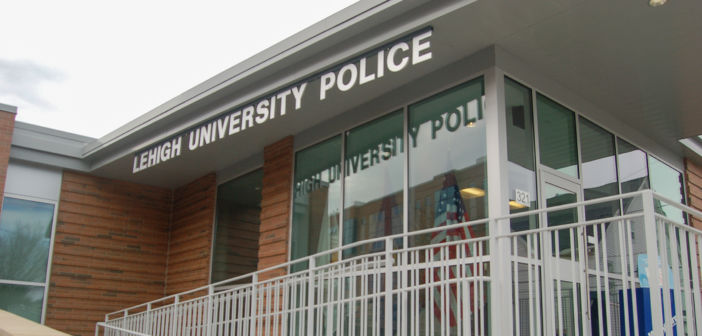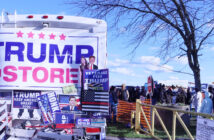Student events on Lehigh’s campus aren’t planned in a day. They can take weeks of organizing, hours of marketing and several hundred dollars worth of police security.
Edward Shupp, the chief of the Lehigh University Police Department, said a number of factors go into determining whether a university event will require police presence.
“We have to consider all the factors,” Shupp said. “Is it open to the general public? Is there alcohol involved? What’s the crowd size going to be? Is money going to be collected?”
Shupp said other factors might include the hours of the event and the day of the week it’s taking place. He said the events with the highest number of officers are graduation and The Rivalry game, when around 20 officers are present for each.
There are two ways students can request security for their organization’s event. All event coordinators are required to complete an event planning form as early as possible, which Shupp said is usually at least two weeks in advance.
Larger events, which are described on the Student Affairs website as “more complex or unusual,” require students to work with the Campus Event Advisory Group. The group determines whether or not the event can take place and whether police security is required.
If police are needed to monitor the event, the student organizations must fund it themselves. In most cases, the money is transferred through the groups’ Lehigh Involvement Connection account.
Shupp himself does not determine which officers will be present at the event and how much they will be paid. He said the amount varies by the officers’ experience levels and the number of hours of overtime they are putting in for the job.
Events that allow alcohol can often require more officers on hand. Brielle Kirk, ’19, a member of Student Senate, worked with LUPD to arrange security at this year’s Gatsby Gala. Like past years, the gala was able to serve alcohol to guests over 21.
“The process is actually pretty easy,” Kirk said. “Any event on campus that has alcohol requires police, and if you have alcohol there are also some forms that have to be filled out.”
Kirk said she met with both Shupp and an LUPD sergeant two months before the gala. During the event, there were two uniformed officers and three event staff on hand at all times, with members of the event staff checking students’ IDs at the door and at the bar. She said the process was fairly simple, and she didn’t run into any issues in the months leading up to the event.
For Katie Morris, ’18, the process of arranging event security didn’t go so smoothly. Morris, the president of No Lost Generation, said the club was looking to host a screening of the documentary “Salam Neighbor” last November in Zoellner. The film follows the stories of Syrian families as they fight for survival in Jordan’s Za’atari refugee camp.
Morris initially reached out to LUPD because the event would be collecting money, and she knew police security was required at all events that did so. However, she said because the film referenced the refugee crisis, she was told she would need to have additional security at the event.
“I believe our situation was slightly different than what most clubs go through due to the nature of our event,” Morris said. “I had a meeting with Chief Shupp and one of his sergeants where we discussed the police presence and pricing. I’m pretty sure most people do not meet with Chief Shupp.”
Shupp said for events like the Syrian film viewing, officers will reach out to outside sources to see if they have any intelligence about a group or party that will be involved, and whether there could be any underlying threats to hosting the event.
Morris said the screening wound up having six officers present, with three in uniform and three undercover.
“Many times if there are speakers that are coming in, controversial people, things like that, then we will have people there, sometimes in plain clothes,” Shupp said. “Then the exposure comes to the university.”
Shupp gave the example of a dignitary from another country visiting the university as a time when an undercover officer would be needed for the event.
“When there’s somebody coming in and it’s a special type of event, then we need to come in and do our due diligence and do our research,” Shupp said.






Comment policy
Comments posted to The Brown and White website are reviewed by a moderator before being approved. Incendiary speech or harassing language, including comments targeted at individuals, may be deemed unacceptable and not published. Spam and other soliciting will also be declined.
The Brown and White also reserves the right to not publish entirely anonymous comments.